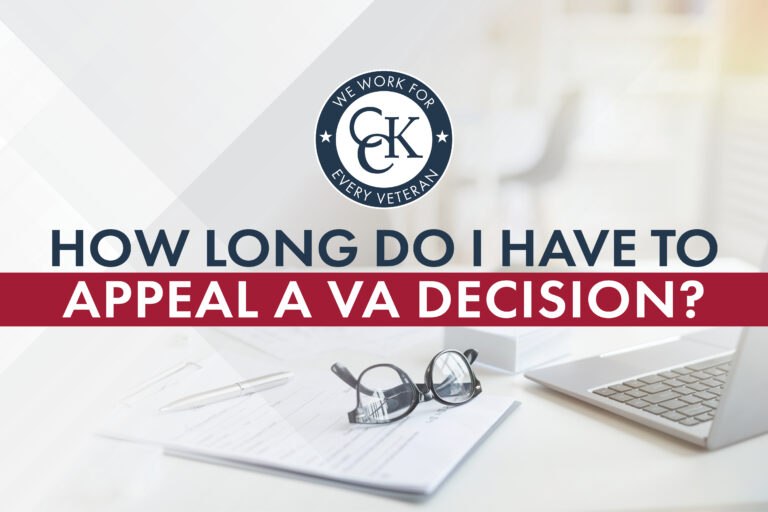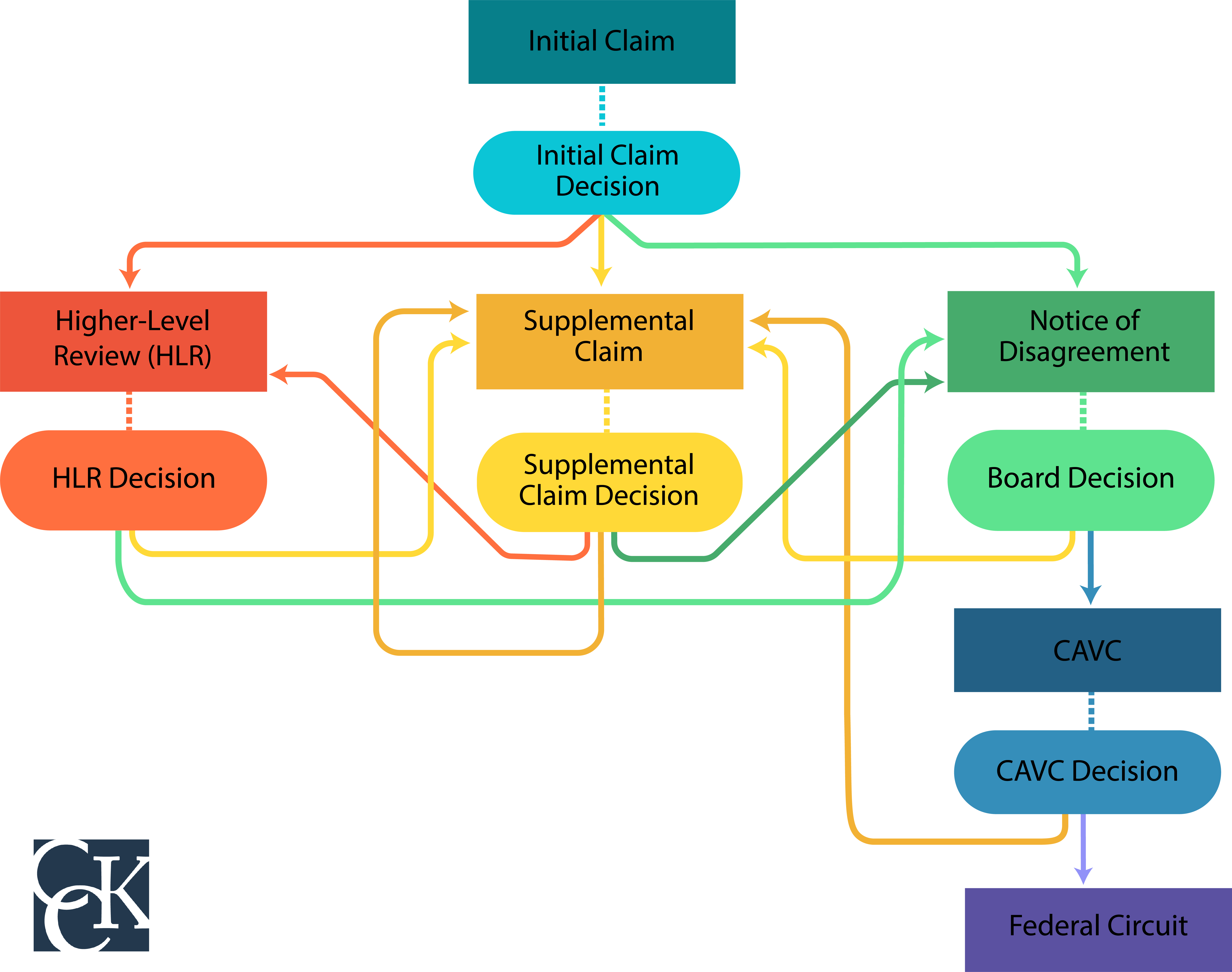How Long Do I Have to Appeal a VA Decision?

CCK Law: Our Vital Role in Veterans Law
Veterans with service-connected disabilities can apply to Veterans Affairs (VA) for compensation and benefits. However, VA often rules incorrectly on claims, due—for example—to missing evidence or inconsistent application of the complex laws around VA benefits. As a result, Congress and VA have established many options for veterans to appeal or dispute VA decisions.
However, VA has strict rules about the timing of appeals in VA disability cases. Veterans who miss a deadline may need to start over with a new claim, which may seriously diminish the amount of back pay that they receive. The best way to preserve a claim’s effective date is with a timely appeal.
In this article, you will discover answers to the following questions:
- How Long Do I Have to Appeal a VA Decision?
- When Will VA Respond with a Decision on My Appeal?
- If My Appeal Is Denied, How Long Do I Have to File a Subsequent Appeal?
How Long Do I Have to Appeal a VA Decision?
If VA has issued an unfavorable decision letter regarding your case, you have several options for appealing their judgement.
Appeal Lanes
Under the Appeals Modernization Act (AMA), VA offers three separate “lanes” you can take to appeal one of their decisions:
- The Higher-Level Review Lane (HLR)
- The Supplemental Claim Lane
- The Notice of Disagreement Lane (i.e., directly appeal to the Board of Veterans’ Appeals)
No matter which of these options you choose, you have to file within one year of the initial decision to meet the deadline to appeal VA’s benefit denial. Note that this one-year timeframe starts from the date that you received VA’s initial decision letter regarding your claim.
Forms for Appeals
Depending on the lane you choose, you will have to submit a specific form to VA within this timeframe:
- Higher-Level Review Lane: Submit VA Form 20-0996 within one year of receiving word of VA’s initial decision.
- Supplemental Claim Lane: Submit VA Form 20-0995 within one year of receiving word of VA’s initial decision.
- Notice of Disagreement: Submit VA Form 10182 within one year of receiving word of VA’s initial decision.
If My Appeal Is Denied, How Long Do I Have to File a Subsequent Appeal?
If you disagree with the decision VA has made regarding your appeal, you still have options available. Specifically, you can file a subsequent appeal to potentially alter VA’s judgement and gain the disability benefits you hope for.
Administrative Appeals
Your initial options for AMA appeals are as follows:
- Higher-Level Review Rating Decision: If you submitted an appeal in the HLR Lane and VA ended up ruling against you, you still have one year to submit a subsequent appeal in either the Supplemental Claim or Notice of Disagreement lanes.
- Supplemental Claim Rating Decision: If you submitted an appeal in the Supplemental Claim Lane and VA ended up ruling against you, you have one year in which to file a subsequent appeal in any of the three appeal lanes.
- Board of Veterans’ Appeals Decision: If you submitted a Notice of Disagreement to the Board of Veterans’ Appeals and they ended up ruling against you, you have either one year to file a Supplemental Claim or 120 days to appeal to the Court of Appeals for Veterans Claims.

The Court of Appeals for Veterans Claims
Notably, decisions issued by the Board of Veterans’ Appeals are considered final and binding. To challenge a Board decision, a veteran or their attorney must appeal to the Court of Appeals for Veterans Claims (CAVC). In order to appeal to the Court, a veteran or their attorney must be able to argue that the Board committed a legal error in its decision.
Appeals to the CAVC must be filed within 120 days of the Board’s decision. If they do not meet this deadline for VA appeals, the Board’s decision will remain standing.
To appeal a decision by the CAVC, the veteran has 60 days to appeal to the Federal Circuit to keep their case alive.
Need Assistance with a VA Appeal? Call CCK Law!
The appeals process can be disheartening for many veterans, particularly when they aren’t clear on VA appeal deadlines or have to wait months or even years to receive a decision letter. Thankfully, veterans like you no longer have to go it alone.
With the help of a VA-accredited attorney, you will receive guidance through every step of the appeals process to ensure your case is as strong as it can be. And if your appeal advances to the CAVC, working with a court-experienced veterans law attorney from the start means you can maintain your appeal team throughout the process.
If you are interested in enlisting the help of a professional attorney, reach out to CCK Law today at (800) 544-9144 or contact us online!
About the Author
Share this Post

